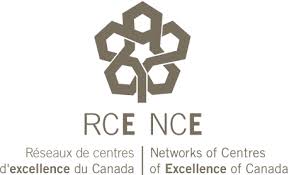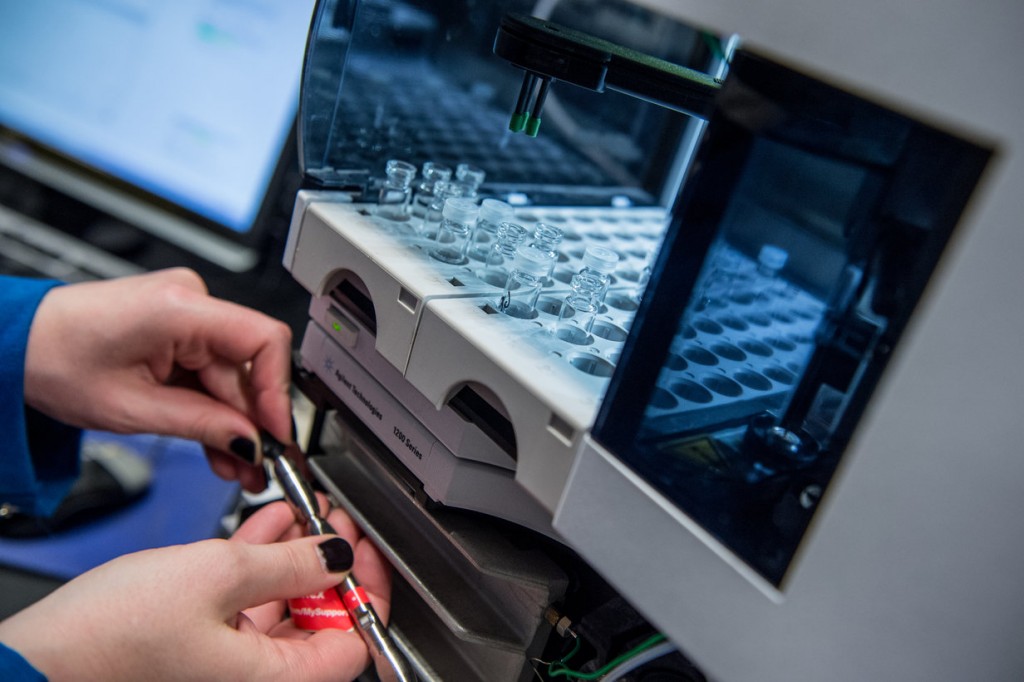 MaRS Innovation was highlighted in the Networks of Centres of Excellence (NCE) newsletter on Wednesday, June 22. The article is titled, “MaRS Innovation revolutionizes approach to commercialization, ” and discusses the success of the MaRS Innovation commercialization model.
MaRS Innovation was highlighted in the Networks of Centres of Excellence (NCE) newsletter on Wednesday, June 22. The article is titled, “MaRS Innovation revolutionizes approach to commercialization, ” and discusses the success of the MaRS Innovation commercialization model.
The article mentions companies such as ScarX Therapeutics, a spin-off of MI and Toronto’s Hospital for Sick Children that is commercializing a topical prescription cream. It also talks about Encycle Therapeutics, a Toronto biotechnology start-up from the University of Toronto, that has developed a fast, inexpensive and industrialized way to synthesize new orally available macrocycle drugs for diseases such as inflammatory bowel disease and fibrosis.
Here is an excerpt from the ExcelleNCE newsletter on MaRS Innovation:
MaRS Innovation (MI) is attracting global attention—and global investors—for a novel model that solves the three biggest challenges to early-stage commercialization: generating robust deal flow, financing young companies and recruiting experienced entrepreneurs.
“I call it the three ‘Ms’: merchandise, which is the deal flow and intellectual property, the money and experienced management,” says Raphael Hofstein, president and CEO of MI.
MI was launched in 2008 as a Centre of Excellence for Commercialization and Research (CECR) to improve how discoveries from academic institutions in the Greater Toronto Area (GTA)— one of the world’s largest innovation hubs— get translated into new products and services, globally competitive companies and highly skilled jobs. Part technology accelerator and part seed investor, MI’s innovative model has brought $150 million in new investments, 300 new jobs and 40 new companies to Ontario.
“When we dealt with MI it was more like the experience we have with a seed financer or early stage investor. They make doing business with them quite easy,” says Ilan Zipkin, senior investment director at Takeda Ventures, Inc., in Palo Alto, CA, the venture capital arm of Japanese-headquartered Takeda Pharmaceutical Company.
[…]MI is the largest commercialization initiative of its kind in Canada, and provides an easy gateway for investors and licensees interested in accessing the most commercially promising intellectual property from 15 Toronto-area universities, hospitals and research institutes. The model creates a robust deal flow and streamlined approach to advancing both the technology and its business case.
MI staff work with academia, industry, venture capitalists, angel investors and government to commercialize inventions with the highest potential, using a technology assessment process backed by solid market analysis, technical knowledge and business acumen. That process includes assessing, filing and protecting intellectual property, and developing and executing a business plan. MI also provides proof of principle funding to prepare the technology for more advanced financing (e.g, a Series A venture capital funding round), and has attracted investment levels typically seen in the U.S.: between $10 million and $30 million, as opposed to the less-than $5 million typically seen in most Series A investments in Canada, particularly for health technologies.
“We have brought the GTA system to the level of the big leaders, comparable to what you would see in the Silicon Valley and Boston clusters,” says Dr. Hofstein.
Proven technologies are either licensed or spun off into new companies, often led by MI staff, with licensing fees, royalties and/or equity returns flowing back to MI and its members. Other inventions are blended or packaged together to make them more attractive to investors.
“You won’t find too many jurisdictions in the world where you have this level of cooperation and collaboration within academia,” says Dr. Hofstein. “It has enabled MaRS Innovation to assess close to 300 inventions each year. In the end, we may end up with 15 that are spun off into companies or licensed annually, which is enough to start building a very powerful portfolio. I truly believe this is the only way commercialization can become meaningful.”
Posted by Stephanie Meszaros, marketing and communications specialist

